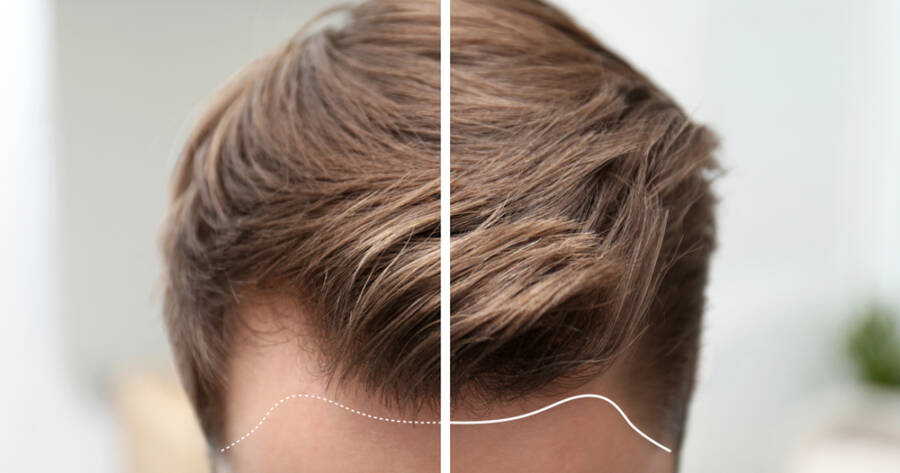Hair loss is a widespread issue impacting both men and women, often driven by genetics, hormonal changes, and stress. Understanding its causes and exploring various treatments such as minoxidil, oral medications, and innovative therapies can aid in managing this condition. Discover the role of lifestyle and nutrition in supporting hair health and regrowth.
Understanding Hair Loss and Its Causes
Hair loss is a prevalent issue affecting both men and women, with multiple factors contributing to the condition, including genetics, hormonal changes, and stress. Female pattern hair loss, known as androgenetic alopecia, is particularly common among postmenopausal women, impacting their emotional well-being and quality of life. Various classifications, like the Ludwig Classification, help describe the types and progression of this condition to better diagnose and treat it.
Genetic and hormonal influences primarily drive androgenetic alopecia, while stress and nutritional deficiencies, such as lack of iron, are also significant contributors to hair thinning. Recognizing the root causes is crucial for determining an appropriate treatment plan with dermatologist guidance. Clinicians often recommend examining the scalp thoroughly through medical history reviews, blood tests, or even scalp biopsies when diagnosing these conditions.
Popular Treatments for Hair Regrowth
One of the most widely used treatments for hair loss is minoxidil, the only FDA-approved topical solution that stimulates hair growth by prolonging the active growing phase of hair. Available in different concentrations and delivery formats, such as foams and solutions, minoxidil can cater to various user needs and hair types for optimal results. Consistent and long-term application is essential for achieving noticeable hair regrowth, with users needing to commit to at least nine months of treatment.
Alongside minoxidil, other interventions include oral medications such as finasteride and spironolactone, which are prescribed based on the specific type of hair loss and patient needs. These drugs have shown benefits for individuals unresponsive to topical treatments, albeit with potential side effects necessitating medical supervision to ensure safety.
Alternative Hair Regrowth Solutions
In addition to traditional medications, several alternative treatments are emerging in the realm of hair regrowth. Platelet-rich plasma (PRP) injections and low-level laser light therapy are innovative techniques gaining traction, though they often involve ongoing treatments and financial considerations. While evidence on the effectiveness of essential oils and dietary supplements like biotin and folic acid is mixed, these alternatives may offer supplementary benefits to those seeking non-invasive options for hair health.
Microneedling, when combined with topicals like minoxidil or PRP, is another avenue explored for enhancing hair regrowth. Users considering such therapies are advised to consult with dermatologists for appropriate device selection and usage. Incorporating gentle hair care practices, such as avoiding harsh hairstyles, heat styling, and chemical treatments, can also help prevent further damage and support healthy hair regrowth.
The Role of Lifestyle and Nutrition in Hair Health
Addressing nutritional factors is vital in managing hair loss, as deficiencies, particularly in iron and protein, can exacerbate thinning. Lifestyle changes, including stress reduction techniques and improved dietary intake, are practical measures to support hair regrowth and overall well-being. Consulting a healthcare provider before initiating any supplement regimen ensures the compatibility of these with existing medications or health conditions to maximize benefits.
Additionally, tackling scalp health with appropriate treatments for conditions like dandruff can mitigate factors that aggravate hair loss. Opting for anti-dandruff shampoos helps in reducing irritation and inflammation of the scalp, thus promoting a healthier environment for hair growth. Seeking regular professional advice is fundamental to tailoring individual treatment plans and ensuring realistic expectations for hair regrowth.
Why You Should Learn More About Hair Loss Regrowth Today
Understanding the multifaceted nature of hair loss not only helps individuals address cosmetic concerns but also improves their overall quality of life. With various treatments and alternative solutions available, exploring comprehensive options tailored to individual conditions is critical.
From medical interventions like minoxidil and oral medications to lifestyle adjustments and nutritional considerations, hair regrowth plans are as diverse as the people experiencing them. Continued education and professional consultation ensure that both preventative measures and advanced treatments are aligned with the latest scientific insights. By doing so, individuals can actively engage in and optimize their journey toward healthier hair, thereby boosting confidence and emotional well-being.

